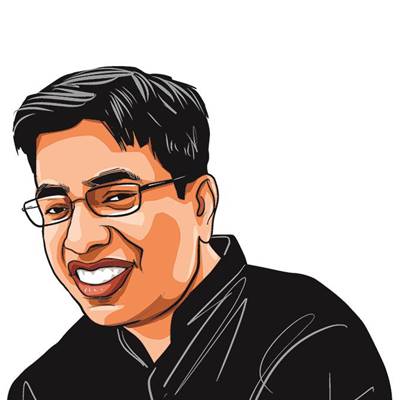Opinion How green can your Diwali be? Not much, but don’t blame the firecrackers
To burst crackers or not — every year on Diwali, people in Delhi face this uncomfortable question. But Diwali isn’t the problem — Delhi’s year-round pollution apathy is
 Whether the argument is for a laissez-faire approach to festivals or that of strict restrictions, the firecracker-centric approach does little to foster conditions that allow people to let themselves loose during Diwali without the apprehension of burning eyes, itchy throats and breathing difficulties for the rest of the month.
(Photo: Unsplash)
Whether the argument is for a laissez-faire approach to festivals or that of strict restrictions, the firecracker-centric approach does little to foster conditions that allow people to let themselves loose during Diwali without the apprehension of burning eyes, itchy throats and breathing difficulties for the rest of the month.
(Photo: Unsplash) To burst crackers or not — every year on Diwali, people in Delhi face this uncomfortable question. The Supreme Court, which had since 2018 become somewhat of a festival dampener, has been moved by the celebratory spirit this year, allowing the sale of green fireworks on October 18-21. It has, however, not budged on its strident stance on conventional crackers.
Fireworks tagged environmentally friendly are only relatively so. At most, they emit about 35 per cent less particulate matter. So do not expect a “Green Diwali”. In fact, with no ban in place, the amount of pollutants could actually go up if people choose to burst more crackers.
Spare a thought for the celebratory mood, however. Restraint and festivity have always had a messy relationship. Celebrations are times for gluttony, even if what is on the plate does not pass the nutritionist’s test. Similarly, festive occasions, when people’s footprints are not measured in terms of carbon dioxide, sulfur dioxide, or carbon monoxide, should be the norm. Lately, there has been a debate on whether crackers have been part of the Diwali tradition for a long time or if they are a recent inclusion in the celebrations. That conversation is not getting us anywhere. Authenticity, in any case, is always a dicey yardstick to judge cultural behaviour.
The uncomfortable issue, however, is this: Just as healthy people have it in them to handle a few days of gluttony, cities shouldn’t turn into gas chambers after a few days of celebration. Almost every year on Diwali, the debate on firecrackers embroils a diverse section of people and institutions — from the Supreme Court to policymakers to representatives of resident welfare groups on WhatsApp. But these conversations rarely have space for how the city has been breathing when it is not immersed in festivities. Are its lungs in shape? Studies do underline that people in most Indian urban centres, including Delhi, do not breathe clean air. But the connection between health and the environment becomes a public concern only during Diwali. For the rest of the year, the matter is seen as part of the stock-in-trade of a few niche experts, NGOs, some policymakers, and probably a handful of doctors.
The omission, unfortunately, has a bearing on the celebration. Whether the argument is for a laissez-faire approach to festivals or that of strict restrictions, the firecracker-centric approach does little to foster conditions that allow people to let themselves loose during Diwali without the apprehension of burning eyes, itchy throats and breathing difficulties for the rest of the month.
The pollution issue is indeed complex, and addressing it will require a combination of technical, regulatory and fiscal interventions. Complexity, however, is also a good reason for not leaving the matter to the government alone. The rich manage temporary respite, with air purifiers and high-quality masks. But even they are not spared when, for days, the smog upsets the rhythm of the city — school breaks are prolonged, work patterns are disrupted as people call sick, and hospitals and clinics are overcrowded. The city that has some of the best research institutes in the country begins to feel disempowered over the government’s inability to implement effective policies. And, it never asks itself why.
Perhaps this sense of inadequacy has to do with how Delhi’s identity has been framed after Independence. The city sees itself as a centre of economic growth, political power, and cultural activity. These are important markers of “development”. But they often pre-empt the creation of a community that places a premium on good air. At times, people have given indications that they are ready to take hard decisions — the experiment with the odd-and-even car pooling system in 2015-16, for instance. These are responses to emergencies. The WhatsApp groups that go abuzz over Diwali festivities have nothing much to say on things that touch people’s lives every day — waste management, car pooling, mobility issues, flexible office hours, and what we do to our lived environments. By themselves, such conversations may not make a difference. But they could create a milieu — perhaps a public sphere — that puts the onus on policymakers, corporate honchos, and all those who matter to be more sensitive to Delhi’s poor air quality. Who knows: Firecrackers can then light up the Delhi skies on Diwali without people fearing haze and coughing bouts looming — green crackers or not.
kaushik.dasgupta@expressindia.com






